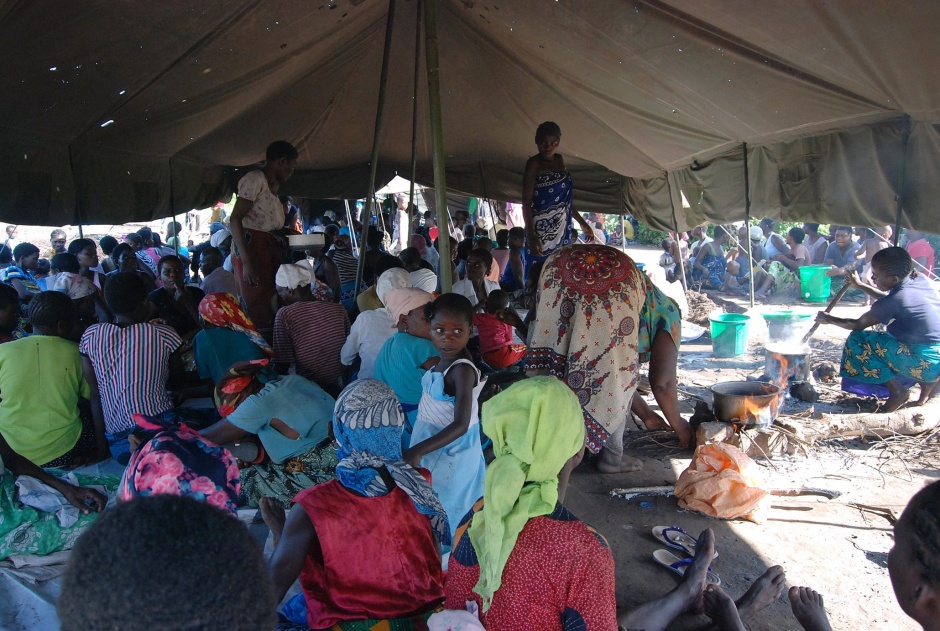“Life is unbearable here. We hardly get food, but what else can we do? We cannot go back to our homes. They are under water and probably [fallen] down by now,” said displaced Aman Maomao, who is among hundreds sheltering in the grounds of a local public building.
In total 1.15 million Malawians have been affected by the flooding of 15 of the country’s 28 districts, which followed heavy rains a month ago. In all, some 336,000 people have been displaced and 276 are missing or dead.
“We have been hit and we are in this situation. There is nothing we can do. We are waiting for the necessities, as we cannot go back home,” said a man who identified himself as Aswell Guta.
When it rains at night, the displaced do their best to find some space in the few tents but they are usually used for medical consultations and are too small to be decent dormitories. They are segregated by sex, but not by age: children share the sleeping quarters with adults. In other displacement sites, men and women share tents.
Only one of the 20 displacement sites in Chikwawa district has enough tents to meet the needs of those living there. In the others many sleep in the open, with few cooking utensils, mosquito nets and buckets.
At some sites there are not enough toilets, while a lack of lighting and segregated facilities increase dangers of assault for women and girls.
Around 230,000 of those displaced are living with communities, while more than 100,000 are living in makeshift camps like the one IRIN visited in Bangula. Around 181 schools are housing displaced people.
Despite numerous risk factors, such as a dearth of clean water and adequate sanitation, there have not yet been any confirmed cases of disease outbreaks, aside from sporadic cases of malaria and diarrhoea.
UNICEF has appealed for some US$9.3 million to cover the costs of responding to the floods over the next few months. Some $5.4 million has been re-allocated from existing resources, leaving a gap of $3.9 million as of 30 January.
That gap “is likely to increase as we move into the recovery phase,” Mahimbo Mdoe, UNICEF Representative in Malawi, said in a statement. “With these new numbers we need to look at scaling up services again.”
Almost $18 million is needed to feed those affected by the floods, according to the UN’s World Food Programme.
Meanwhile, the Department of Meteorology and Climate Change has warned of further heavy downpours from 11 to 14 February. There are “high risks of triggering flash floods and riverine flooding in flood-prone districts including Nsanje, Chikwawa, Phalombe, Mangochi, Salima, Nkhata Bay and Karonga,” it said.
According to a joint report by the UN and the Malawian Department of Disaster Management Affairs, “with response efforts stretched to meet current humanitarian needs, the risk of further flooding raises a critical concern. Preparedness and response efforts should, therefore, be scaled up in all sectors.”
Agriculture in flooded areas has been badly affected, with some 42,000 ha of farmed land destroyed and 100,000 tonnes of crops lost.
Sm/am





